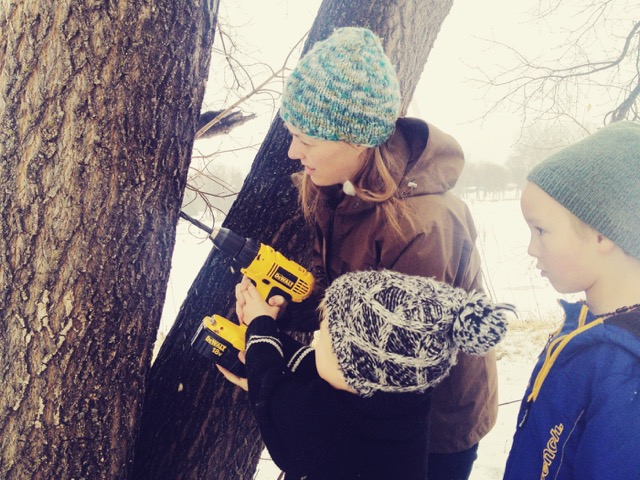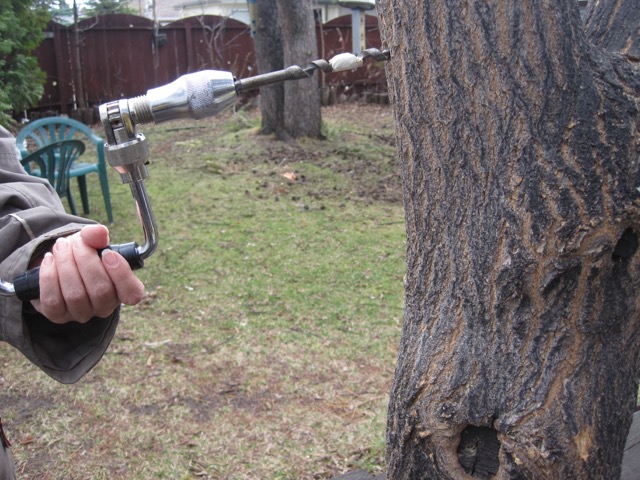Most kids love the sticky, sweet Canadian goodness that is maple syrup. My kiddos certainly do. I always feel a little bad limiting their use of such a down to earth, delicious and nourishing natural food – and for some reason they never quite understood what all the fuss was about when we would say that it is pricey and to be used in moderation. Until they made their own; until they did the work of tapping trees, trekking out to do the daily bucket check and hauling the loot home, patiently boiling it down... to find that their several 4L milk jugs produced about 100ml of syrup! Ouch.

Tapping trees with kids is a really rewarding experience with so many valuable lessons. We learned together about identifying maple trees, how to drill in a tap, evaporation, and more. On a whole other level, we were schooled in patience, patience, patience; that the old adage "good things come to those who wait" has merit. It filled our kids up with the knowledge that they can be makers and providers as they teamed up with mother nature to create this decadent treat.

Are you ready to tackle some tree-tapping with your crew? Follow along with this tutorial by local tree expert Ken Fosty of Forestry Training Services in Manitoba. You can check out his website for more info on tapping, trees, and even growing your own mushrooms at home! Then head over to Tiny Peasant to grab a maple-themed children's book list for some cozy post-tree-checking story cuddles.
How to make your own maple syrup
Trees have sap. Sap is mostly water with natural tree sugars. If you want to make syrup, you collect the sap, apply heat to boil away most of the water and then you’re left with the natural tree sugars – yummy maple syrup.
When to start tapping
Trees that are at least 20 cm (eight inches) in diameter can be tapped in late March/early April when daytime temperatures are above freezing and night temperatures below freezing.
What you’ll need
- a drill with 7/16-inch bit
- a tap for each taphole
- a milk jug for each taphole
- a large pan for boiling the sap
- a source of heat (wood stove, camp stove, BBQ) for boiling the sap
Collecting the sap
- Drill a hole approximately five cm (two inches) deep into sound wood, slanting slightly upward to allow the flow of sap. Insert the tap and hammer lightly into the tree. A milk jug is then attached to the spout so the sap flows into it.



Making the syrup
- Boiling should be done outdoors to allow large amounts of steam to escape.

When to stop tapping
- When maple buds begin to swell and the baby leaves start to emerge from their buds, it’s time to stop collecting the sap.
- Remove the taps, but don’t plug the holes as they will seal naturally over time. The same trees can be tapped annually, with taps positioned at different locations along the trunk of the tree.
Did you know?
- Some of your maple trees will have lots of seeds while other maples have none. Why is that? Well, in the maple tree world, there are boy and girl trees. The girls have the seeds (babies).
- A single taphole may produce up to eight litres of sap per day.
- 40 litres of sap is required to produce one litre of maple syrup.









